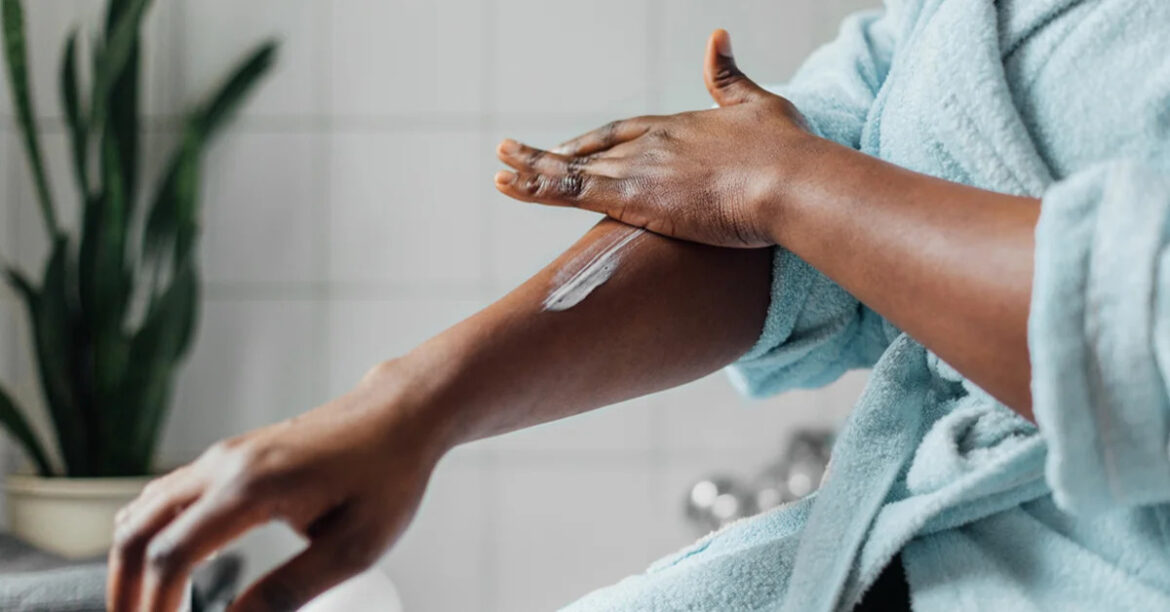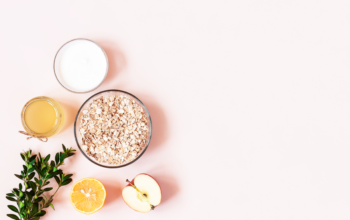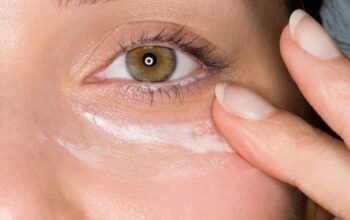Are you struggling with eczema on dark skin? Dealing with this skin condition can be particularly challenging, as it requires special care and attention. However, there are several effective home remedies and natural treatments available that can help alleviate the symptoms and promote healthier skin. In this article, we will explore various ways to treat eczema on dark skin, providing you with valuable insights and practical solutions. So, let’s dive in!
Understanding Eczema on Dark Skin
Eczema, also known as atopic dermatitis, is a chronic inflammatory skin condition characterized by red, itchy, and inflamed patches of skin. It can occur on any part of the body and is often triggered by environmental factors, allergies, or genetic predisposition. Natural skin care is essential to manage eczema effectively, especially on dark skin where it may appear as darker or lighter patches, making it more challenging to diagnose and treat.
Natural Remedies for Eczema

Eczema Creams and Moisturizers
Eczema creams and moisturizers play a crucial role in managing eczema symptoms. Look for products that are specifically formulated for sensitive skin and free from harsh chemicals and fragrances. Ingredients such as ceramides, hyaluronic acid, and shea butter can help hydrate the skin and restore its natural barrier.
Bathing and Hydration
Proper bathing techniques can make a significant difference in managing eczema. Avoid hot water and opt for lukewarm baths instead. Adding colloidal oatmeal or baking soda to the bathwater can provide soothing relief to itchy skin. After bathing, pat the skin dry and apply a gentle moisturizer to lock in moisture.
Oatmeal Baths
Oatmeal baths are a popular natural remedy for eczema. Oatmeal contains anti-inflammatory properties that can help reduce itching and inflammation. To prepare an oatmeal bath, grind plain oatmeal into a fine powder and dissolve it in warm water. Soak in the bath for 15-20 minutes, then rinse and pat dry.
Coconut Oil
Coconut oil is known for its moisturizing and antimicrobial properties, making it an excellent option for eczema treatment. Apply virgin coconut oil directly to the affected areas to soothe dryness and reduce inflammation. Coconut oil can also help restore the skin’s natural pH balance.
Aloe Vera
Aloe vera gel has soothing and cooling properties that can provide relief from itching and inflammation. Extract fresh gel from an aloe vera leaf and apply it to the affected skin. Leave it on for 15-20 minutes, then rinse with lukewarm water. Repeat this process twice daily for optimal results.
Honey
Honey has natural antibacterial properties and can help moisturize dry skin. Apply raw honey directly to the affected areas and leave it on for 20-30 minutes. Rinse with warm water and pat dry. Honey can also be added to bathwater for a moisturizing and soothing effect.
Home Remedies for Dark Skin
Shea Butter
Shea butter is a natural emollient that has been used for centuries to moisturize and nourish the skin. It contains vitamins A and E, which help soothe inflammation and promote healing. Apply shea butter directly to the affected areas of dark skin to alleviate dryness and reduce eczema symptoms. Shea butter is gentle and suitable for daily use.
Turmeric
Turmeric is well-known for its anti-inflammatory properties and can be beneficial in managing eczema on dark skin. Mix turmeric powder with water or coconut oil to create a paste. Apply the paste to the affected areas and leave it on for 15-20 minutes. Rinse with lukewarm water and pat dry. Repeat this remedy twice a week.
Lemon Juice
Lemon juice is a natural astringent and can help lighten dark patches caused by eczema. Squeeze fresh lemon juice and apply it directly to the affected areas using a cotton ball. Leave it on for 10-15 minutes, then rinse with water. Lemon juice may cause a slight tingling sensation, so it’s essential to monitor your skin’s reaction.
Cucumber
Cucumber has a high water content and is excellent for hydrating and soothing the skin. Slice a cucumber and place the slices on the affected areas. Leave them on for 15-20 minutes, then rinse with cool water. Cucumber can provide instant relief from itching and reduce redness.
Olive Oil
Olive oil is a rich source of antioxidants and healthy fats that nourish and moisturize the skin. Massage extra virgin olive oil onto the affected areas of dark skin to alleviate dryness and reduce inflammation. Olive oil can also help improve skin texture and promote healing.
Eczema Treatment at Home
Managing eczema at home involves adopting certain lifestyle habits and practices that can help minimize flare-ups and maintain healthy skin. Here are some essential tips for treating eczema at home:
Avoiding Triggers
Identify and avoid triggers that worsen your eczema symptoms. Common triggers include certain fabrics, harsh soaps or detergents, fragrances, stress, and allergens. By eliminating or minimizing exposure to these triggers, you can reduce the frequency and severity of eczema flare-ups.
Moisturizing Regularly
Moisturizing is key to managing eczema on dark skin. Apply a gentle and fragrance-free moisturizer to your skin at least twice a day, focusing on the areas prone to dryness. Moisturizers help lock in moisture, soothe irritation, and maintain the skin’s natural barrier.
Using Gentle Cleansers
Avoid harsh soaps and cleansers that can strip the skin of its natural oils and disrupt its pH balance. Opt for mild, fragrance-free cleansers or soap substitutes specially formulated for sensitive skin. Gentle cleansers help cleanse the skin without causing further dryness or irritation.
Wearing Breathable Fabrics
Choose clothing made from breathable fabrics such as cotton or linen. These fabrics allow air to circulate freely around the skin, reducing the risk of irritation and sweating. Avoid synthetic fabrics and tight-fitting clothing that can trap moisture and exacerbate eczema symptoms.
Managing Stress
Stress can trigger or worsen eczema symptoms. Find healthy ways to manage stress, such as practicing mindfulness, engaging in relaxation techniques, or pursuing hobbies that bring you joy. Managing stress can positively impact your overall well-being and help keep eczema under control.
Dark Skin Care Tips
Taking care of dark skin affected by eczema requires specific considerations. Here are some essential tips to keep in mind:
Sun Protection
Protect your skin from the sun’s harmful UV rays by wearing sunscreen with a high SPF. Dark skin is not immune to sun damage and can also develop hyperpigmentation and other complications. Look for sunscreens that offer broad-spectrum protection and are specifically formulated for sensitive skin.
Hyperpigmentation
Hyperpigmentation is a common concern for individuals with dark skin who have eczema. To manage hyperpigmentation, use skincare products that contain ingredients like niacinamide, kojic acid, or vitamin C. These ingredients can help lighten dark spots and even out skin tone over time.
Scar Management
Eczema can sometimes lead to scarring on dark skin. To minimize the appearance of scars, apply silicone-based scar gels or creams. These products create a protective barrier over the scar and help flatten and fade it gradually.
Gentle Exfoliation
Exfoliating dark skin affected by eczema requires a gentle approach. Avoid harsh scrubs or exfoliants that can further irritate the skin. Opt for mild exfoliating cleansers or use a soft washcloth to gently remove dead skin cells and promote skin renewal.
Avoiding Harsh Chemicals
Be cautious about using skincare products that contain harsh chemicals, artificial fragrances, or dyes. These ingredients can irritate the skin and worsen eczema symptoms. Look for gentle, fragrance-free, and hypoallergenic products that are suitable for sensitive skin.
Homemade Eczema Remedies
If you prefer natural and homemade remedies, here are some additional options to consider:
Chamomile Tea Compress
Brew a cup of chamomile tea and let it cool. Soak a clean washcloth in the tea and apply it as a compress to the affected areas. Chamomile has anti-inflammatory properties that can help calm irritated skin and reduce itching.
Calendula Salve
Calendula is a healing herb that can soothe eczema on dark skin. Look for calendula salves or creams and apply them to the affected areas as needed. Calendula promotes skin regeneration and reduces inflammation.
Apple Cider Vinegar Soak
Add a cup of raw, unfiltered apple cider vinegar to a warm bath and soak in it for 15-20 minutes. Apple cider vinegar helps balance the skin’s pH and has antimicrobial properties that can reduce the risk of infection.
Witch Hazel Solution
Witch hazel is a natural astringent that can help relieve itching and inflammation. Dilute witch hazel with water and apply it to the affected areas using a cotton ball. Let it dry naturally and repeat the process as needed.
Tea Tree Oil
Tea tree oil has antimicrobial and anti-inflammatory properties that make it beneficial for eczema treatment. Mix a few drops of tea tree oil with a carrier oil like coconut oil and apply it to the affected areas. Tea tree oil should always be diluted before use.
Dark Skin Treatment for Eczema
In severe cases of eczema on dark skin, medical intervention may be necessary. Here are some treatment options that dermatologists may recommend:
Topical Steroids
Topical steroids are commonly prescribed to reduce inflammation and relieve itching associated with eczema. These medications come in different strengths and should be used under medical supervision.
Antihistamines
Antihistamines can helpreduce itching and promote better sleep by blocking the effects of histamine, a compound released during allergic reactions. Over-the-counter antihistamines or prescription-strength options may be recommended by your healthcare provider.
Immunomodulators
Immunomodulators, such as calcineurin inhibitors, are prescribed for moderate to severe eczema. These medications work by suppressing the immune system’s response, reducing inflammation, and helping to control eczema symptoms. They are often used when other treatments have not been effective or when long-term steroid use is not desired.
Wet Wrap Therapy
Wet wrap therapy involves applying moisturizer or medication to the skin and then wrapping the affected areas with damp bandages or clothing. This technique helps lock in moisture, reduce itching, and enhance the effectiveness of topical treatments. Wet wrap therapy should be done under medical guidance.
Phototherapy
Phototherapy, or light therapy, involves exposing the affected skin to controlled amounts of natural or artificial ultraviolet light. This treatment helps reduce inflammation, itching, and bacterial growth associated with eczema. Phototherapy sessions are typically conducted in a healthcare facility under the supervision of a dermatologist.
Eczema Natural Treatment
If you prefer a more holistic approach, there are several natural treatment options you can explore:
Probiotics
Probiotics are beneficial bacteria that can help restore the balance of gut flora and support the immune system. Some studies suggest that probiotics may help reduce eczema symptoms, especially in infants and children. Consider incorporating probiotic-rich foods or supplements into your diet, but consult with a healthcare professional first.
Evening Primrose Oil
Evening primrose oil is rich in gamma-linolenic acid (GLA), an omega-6 fatty acid with anti-inflammatory properties. It may help reduce inflammation and alleviate eczema symptoms. Consult with a healthcare provider to determine the appropriate dosage and suitability for your condition.
Fish Oil Supplements
Fish oil supplements contain omega-3 fatty acids, which have anti-inflammatory effects. These supplements may help reduce eczema symptoms and improve overall skin health. Consult with a healthcare professional to determine the right dosage and quality of fish oil supplements.
Vitamin D
Vitamin D deficiency has been linked to increased susceptibility to eczema and other inflammatory skin conditions. Increasing your vitamin D levels through sunlight exposure, dietary changes, or supplements may help manage eczema symptoms. Consult with a healthcare professional to determine the appropriate dosage and monitoring.
Acupuncture
Acupuncture, an ancient Chinese therapy, involves inserting thin needles into specific points on the body to stimulate healing and balance the flow of energy. Some studies suggest that acupuncture may help reduce eczema symptoms, including itching and inflammation. Consult with a licensed acupuncturist to explore this treatment option.
Home Remedies for Eczema on Dark Skin
Here are some additional home remedies specifically targeted at eczema on dark skin:
Neem Oil
Neem oil has antibacterial and anti-inflammatory properties that can soothe eczema symptoms. Apply neem oil directly to the affected areas of dark skin to reduce itching, redness, and inflammation. Neem oil should be diluted with a carrier oil, such as coconut oil, before use.
Black Seed Oil
Black seed oil, also known as Nigella sativa oil, has antioxidant and anti-inflammatory properties that can benefit eczema on dark skin. Massage black seed oil onto the affected areas to moisturize the skin and reduce inflammation. It can also help alleviate itching and promote healing.
Neem Leaves Paste
Grind fresh neem leaves into a paste and apply it to the affected areas of dark skin. Neem leaves have antimicrobial properties and can help soothe eczema symptoms. Leave the paste on for 15-20 minutes, then rinse with lukewarm water. Repeat this remedy regularly for optimal results.
Baking Soda
Add baking soda to warm bathwater and soak in it for 15-20 minutes. Baking soda helps balance the skin’s pH level and relieve itching. It can also help reduce inflammation and promote the healing of eczema on dark skin.
Lavender Essential Oil
Lavender essential oil has calming and anti-inflammatory properties that can provide relief from eczema symptoms. Dilute a few drops of lavender essential oil in a carrier oil, such as coconut oil, and apply it to the affected areas. Lavender oil can help reduce itching and promote relaxation.
Remedies for Eczema on Dark Skin
Consider these additional remedies for eczema on dark skin:
Colloidal Oatmeal
Colloidal oatmeal is finely ground oatmeal that can be used to soothe eczema on dark skin. Add colloidal oatmeal to warm bathwater and soak in it for 15-20 minutes. Colloidal oatmeal forms a protective layer on the skin, moisturizes it, and reduces itching and inflammation.
Jojoba Oil
Jojoba oil is a lightweight and non-greasy oil that closely resembles the skin’s natural sebum. Apply jojoba oil to the affected areas of dark skin to moisturize and reduce dryness. Jojoba oil also has anti-inflammatory properties that can help alleviate eczema symptoms.
Avocado Oil
Avocado oil is rich in essential fatty acids, vitamins, and antioxidants that nourish and hydrate the skin. Massage avocado oil onto the affected areas to alleviate dryness, reduce inflammation, and promote healing. Avocado oil is gentle and suitable for sensitive skin.
Marshmallow Root
Marshmallow root has anti-inflammatory properties and can be used to soothe eczema on dark skin. Prepare a marshmallow root infusion by steeping dried marshmallow root in hot water for 15-20 minutes. Allow it to cool, then apply it to the affected areas using a cotton ball or clean cloth.
Calamine Lotion
Calamine lotion contains zinc oxide and calamine, which have soothing and drying properties. Apply calamine lotion to the affected areas of dark skin to reduce itching and promote healing. Calamine lotion is readily available over the counter and can be used as needed.
Dark Skin Eczema Treatment: When to Seek Medical Help
While home remedies and natural treatments can be effective for managing eczema on dark skin, there may be instances where medical intervention is necessary. Consult a dermatologist or healthcare professional if:
- Your eczema symptoms worsen or do not improve with home remedies.
- The affected areas become infected or show signs of severe inflammation.
- You experience extreme discomfort or pain.
- Eczema significantly impacts your quality of life or daily activities.
A healthcare professional can provide a proper diagnosis, recommend appropriate treatments, and guide you in managing eczema effectively.
Conclusion
Managing eczema on dark skin requires a comprehensive approach that includes home remedies, natural treatments, and, if necessary, medical interventions. By incorporating the suggested remedies into your skincare routine, practicing good skin hygiene, and avoiding triggers, you can effectively alleviate eczema symptoms and promote healthierskin. Remember to listen to your body and consult with a healthcare professional for personalized advice and guidance.
FAQs
FAQ 1: Can eczema be cured completely?
Unfortunately, there is currently no known cure for eczema. However, with proper management and treatment, it is possible to control and alleviate eczema symptoms effectively.
FAQ 2: Is it safe to use home remedies on dark skin?
Yes, many home remedies can be safe and beneficial for dark skin. However, it’s important to remember that everyone’s skin is unique, and what works for one person may not work for another. It’s always a good idea to do a patch test on a small area of skin before applying any new remedy to the entire affected area.
FAQ 3: How long does it take to see results with natural treatments?
The time it takes to see results with natural treatments can vary depending on the individual and the severity of the condition. Some people may experience improvement within a few days or weeks, while others may require more time. Consistency and patience are key when using natural treatments.
FAQ 4: Can stress worsen eczema symptoms?
Yes, stress can worsen eczema symptoms. Emotional stress and anxiety can trigger flare-ups and intensify itching and inflammation. Finding healthy ways to manage stress, such as practicing relaxation techniques or engaging in activities you enjoy, can help reduce eczema symptoms.
FAQ 5: Are there any lifestyle changes that can help manage eczema?
Yes, certain lifestyle changes can help manage eczema. These include avoiding known triggers, maintaining a regular skincare routine, using gentle and fragrance-free products, moisturizing regularly, wearing breathable fabrics, managing stress, and adopting a healthy diet rich in vitamins and minerals.




